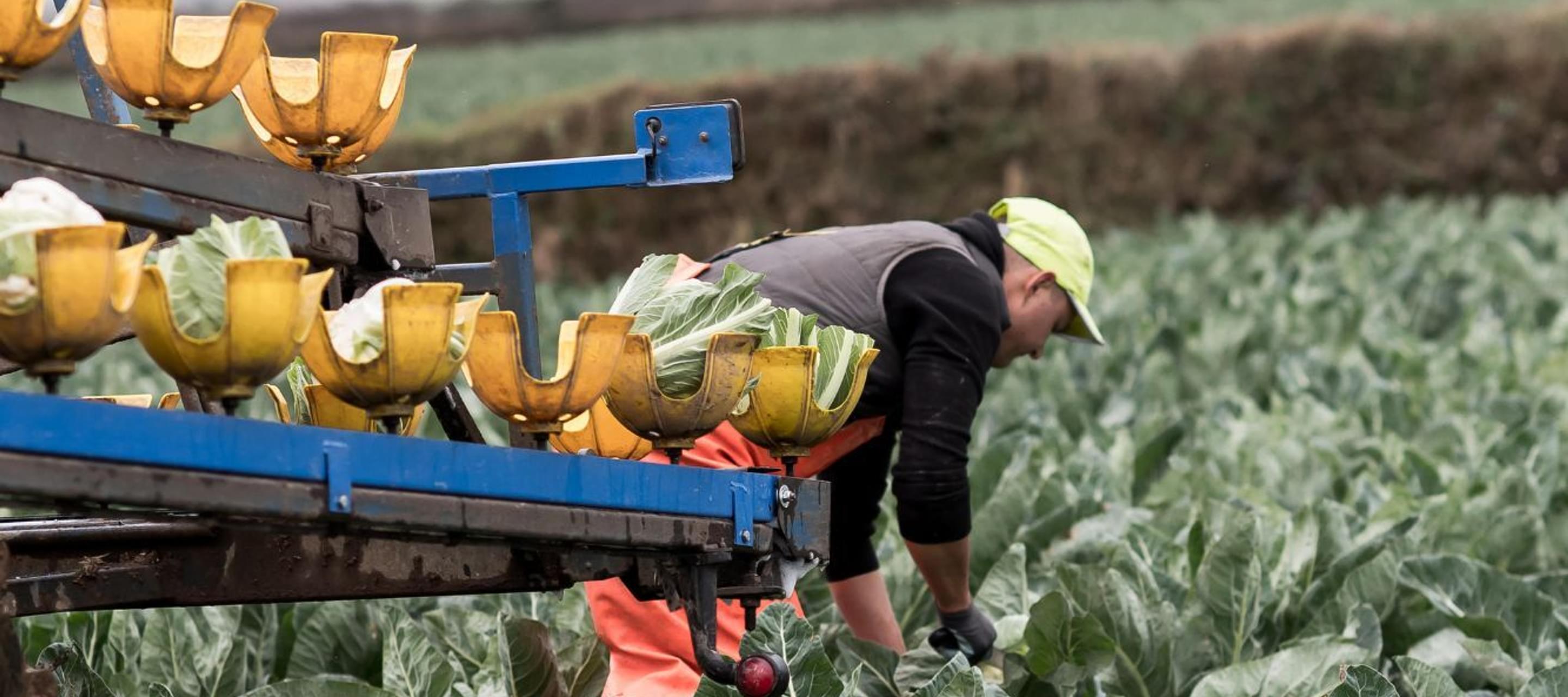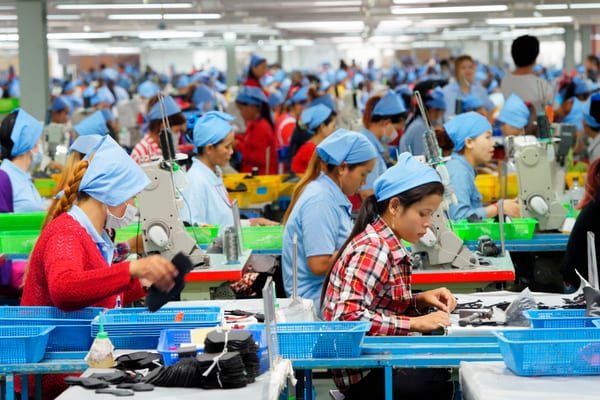Slavery is ever present - the UK must step up
18 October 2023

Last week saw the much-delayed appointment of the 3rd UK Anti-Slavery Commissioner, a position that has been vacant since April 2022. The appointment of Eleanor Lyons, a former Government Advisor, is timely.
On Anti-Slavery Day, the UK and many other countries around the world must confront the reality that modern forms of slavery remain an ever present feature of our societies that must be tackled through renewed strategies, resources and political will.
The latest Walk Free / ILO research estimates 27.6 million people are in situations of forced labour. Although the word slavery conjures visions of incarceration, chains, and physical violence, or the involvement of traffickers and criminal gangs, the reality is that modern slavery takes many forms.
Forced labour is being normalised
Modern slavery can look like ordinary work. The chains that bind people are often financial. Furthermore, modern slavery is rarely a fixed point. It is more usually a continuum with differing degrees of exploitation over a period of time.
Around the world, many workers with few options available to them, are compelled to accept a range of exploitative practices to secure a job. In many situations we see the ILO Indicators of Forced Labour, poor working and living conditions, intimidation and threats and restriction of movement normalised. For many workers, poverty wages and wage theft leave them ever more indebted and vulnerable. Debt bondage caused by the ubiquitous practice of recruitment fees to secure a job loads many migrant workers with additional debt and vulnerability, which can restrict their ability to assert their rights and say no to exploitation.
Legislation to protect those at risk
In a globalised world, modern slavery is not confined to remote locations or the darker corners of the economy. In fact, many business models are now predicated on degrees of exploitation. In response to increased awareness and concern around modern slavery, governments and international bodies have introduced legislation. In the USA, the annual Trafficking In Persons Report the Federal Acquisition Regulations and more recently the increased use of Withhold Release Orders has shaped responses to the issue. In Europe, a number of countries have introduced their own regulations with moves towards greater prevention efforts contained within the new EU Human Rights Due Diligence legislation. These high-profile, high-level efforts by legislators are welcome. However, legislation is frequently at odds with political will and a backdrop of market-driven economies, resistance to regulation or capacity to enforce it and an asymmetry between available jobs and workforces.
The UK Modern Slavery Act 2015 was the first of its kind in the world. The Act made clear the responsibilities on all companies to prevent exploitation, and for the larger ones to report annually on their efforts to do so, signed at executive level. The appointment of Kevin Hyland as the UK’s first Anti-Slavery Commissioner sent a clear signal to business, and helped drive implementation through his regular engagement with many individual companies and sectors. The Modern Slavery Act was generally supported by business and in particular the UK Supermarket Sector and British Retail Consortium.
The UK had previously introduced the Gangmasters Licensing Authority (now the Gangmaster and Labour Abuse Authority) which required those supplying labour into agriculture, horticulture and some areas of food processing to be licensed and operate to a key set of standards. The GLA helped provide a level playing field, ensuring all businesses were operating legally and minimising the threat of labour exploitation. Many organisations, including IHRB, advocated for similar licensing to extend to other sectors where risks of exploitation were high, such as hospitality, construction, and care.
The risks to migrant workers
The shine of these achievements in the UK has, however, been tarnished in recent years. Brexit and the war in Ukraine has seen acute labour shortages across many sectors in the UK. The nature of employment previously undertaken by migrant workers: manual work, minimum wages, often temporary or seasonal positions, with generally poor working conditions, has not proved to be an attractive proposition to workers in the UK. Lack of workers has in turn placed additional burdens on existing workforces as companies seek to do more with less staff.
And so the UK, like many other richer countries, once more turns to a migrant workforce to do the jobs that no one else wants to do. But now, rather than the EU, these workers are coming from even further afield, from very low-wage countries such as India, Nepal, Sri Lanka, The Philippines, and others.
Despite assurances that high standards are being maintained, the media regularly publishes exposés that suggest otherwise. We hear reports of care home staff from a host of countries being scammed and swindled with false promises, payments for services they don’t need, fake trainings, and a range of other exploitations. The original plans to recruit agricultural workers from Nepal had to be altered after widespread exploitation of workers by recruitment agents. This saw the Seasonal Agricultural Workers Scheme hastily extended to allow recruitment from other countries but with little government oversight. In fact, the very nature of short term seasonal agricultural work and expensive travel costs from outside Europe is making any scheme unviable for businesses that are trying to operate to an Employer Pays Model of Recruitment - where the employer bears the cost of recruitment instead of the employee. Many of the challenges faced by these workers can be considered indicators of forced labour. The long delay in appointing a new Anti-Slavery Commissioner has certainly not sent a clear message (or maybe it has) on the importance the UK Government attaches to the issue.
The safeguarding of agency workforces is further jeopardised by real term funding cuts to the Gangmaster and Labour Abuse Authority.
Doubling-down on anti-slavery legislation
The UK Modern Slavery Act was a ground-breaking initiative. It made clear to business the expectations on companies based in the UK to prevent exploitation, including in their supply chains abroad. However, there remains a clear need for the current UK Government to match those efforts by ensuring consistent and effective enforcement of its own legislation, with appropriate oversight mechanisms and licensing. In doing so, it would not just prevent the exploitation of workers but also ensure the level playing field businesses need to compete fairly within the law. The UK Government was a world leader in efforts to prevent Modern Slavery. As the use of forced labour increases, now is the time to step up once again and double down on those efforts.




